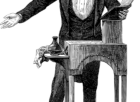Franz Kafkas impact on literature is undeniable

His unique writing style and profound exploration of themes such as alienation, bureaucracy, and existentialism have captivated readers for decades. In this article, we will delve into the world of Franz Kafka’s books, highlighting their significance and providing historical context for a comprehensive understanding of his works.
Introduction:
Franz Kafka, born in 1883 in Prague, was a German-speaking author whose writings have had a profound influence on literature. His works often portray individuals who struggle against oppressive social systems, which reflect Kafka’s own experiences as a Jewish person living in a time of political and social upheaval. Kafka’s books delve into the depths of human psychology, expressing themes of existentialism and absurdity, leaving readers with a sense of unease and contemplation.
Historical Development of Franz Kafka’s Books:

To understand the books of Franz Kafka, we must explore their historical development and the context in which they were written.
1. Early Works:
Kafka initially published a few short stories and prose pieces in literary magazines. Some of his notable early works include “Description of a Struggle” and “Wedding Preparations in the Country.” While not yet fully embracing his distinct themes, these works showcased Kafka’s exceptional writing style and introspective nature.
2. The Trial (1925):
One of Kafka’s most famous and enigmatic works, “The Trial,” was published posthumously. The novel follows the protagonist, Josef K., as he navigates a mysterious and absurd governmental legal system that puts him on trial without revealing the nature of his supposed crime. This tale highlights Kafka’s exploration of the individual’s struggle against an oppressive bureaucracy and the absurdity of the human condition.
3. The Metamorphosis (1915):
“The Metamorphosis” tells the story of Gregor Samsa, who wakes up one morning transformed into a monstrous insect. This novella explores themes of isolation, identity, and the alienating effects of modern society. Kafka’s deeply introspective approach exposes the conflicts and anxieties of the human psyche, creating a chilling yet thought-provoking narrative.
4. The Castle (1926):
Published posthumously, “The Castle” revolves around the character K., who encounters an impenetrable bureaucratic hierarchy while trying to gain access to a castle. This novel is a profound examination of power dynamics and the futile search for meaning in an absurd world. Kafka’s imaginative storytelling and commentary on social structures make “The Castle” a compelling read.
5. America (posthumously published):
“America” follows the exploits of young Karl Rossman, who emigrates to the United States after a scandal at home. This unfinished novel explores themes of innocence lost, displacement, and the pursuit of the American Dream. Kafka’s distinct narrative style, characterized by surreal events and complex characters, depicts the challenges faced by immigrants in an unfamiliar society.
Conclusion:
Franz Kafka’s books continue to captivate readers with their haunting exploration of existential themes and unique narrative style. Through his stories, Kafka delves into the depths of human psychology, exposing the alienation and absurdity of modern society. From “The Trial” to “The Metamorphosis” and “The Castle,” Kafka’s works leave readers with a deep sense of unease and contemplation. By unraveling the historical development of Kafka’s books, we gain a comprehensive understanding of his literary contributions and their ongoing relevance in today’s world.
In summary, Franz Kafka’s books invite readers into a world of introspection and psychological exploration. Their historical context and profound themes make them a must-read for anyone interested in literature, existentialism, and the human condition.











